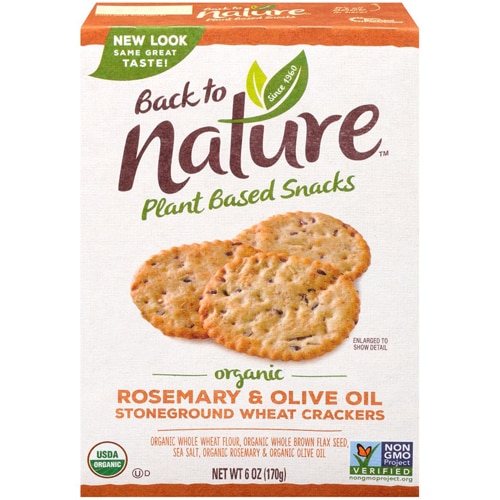[vc_row][vc_column][vc_column_text]
Carbohydrates have always been a hot topic in the news, generating conflicting messages that have led many to believe they are harmful and contribute to weight gain or other health issues. However, carbohydrates are a crucial component of a healthy diet and an essential macronutrient our bodies need to produce and store energy.
Let's dismantle the myths around carbohydrates, explore their essential functions and learn how to include them in our diet.

Are carbs bad for you?
The widespread apprehension regarding carbohydrates originates from
diet culture. Consider the notorious
Atkins Diet, a low-carbohydrate diet developed in the 1960s by Dr. Robert Atkins, which assured consumers that weight loss was possible even with high intake of protein and fats, as long as one steered clear of high-carb foods. Since the Atkins Diet made its debut, other low-carb diets have emerged, each contributing to the negative rhetoric surrounding carbohydrates, misleading many to mistakenly associate them with weight gain and prompting some to cut out this entire food group entirely.
Adopting a low-carb diet might result in short-term weight loss; however, it can also give rise to a variety of issues that often go overlooked. Engaging in any form of dieting can pave the way to
disordered eating habits or potentially develop into an eating disorder. These conditions can profoundly impact your mental and emotional well-being, as well as influence your self-perception and body image.
Another issue with low-carb diets lies in the ability to adhere to this way of eating long term. While temporarily reducing or eliminating carbs might be feasible, maintaining such restrictions over time is both challenging and unrealistic. Consequently, any weight shed during the diet is likely to be regained once carbohydrates are reintroduced—a phenomenon known as weight cycling or “yo-yo” dieting. This fluctuation can result in additional weight gain and is associated with a
heightened risk of various diseases.
Rather than avoiding carbohydrates, it is important to educate yourself on why they are important and how to incorporate them into your diet in a healthy and balanced way.
Why are carbohydrates important?
Carbohydrates are a crucial macronutrient, comprising one of three primary components found in food, alongside proteins and fats. They act as the preferred source of energy, fueling essential bodily systems including the brain, organs and muscles. The absence of carbohydrates in the diet can lead to a spectrum of health complications and a variety of negative symptoms, ranging from weakness, challenges in concentration and headaches to digestive issues and deficiencies in vital nutrients.
What are the differences between simple and complex carbohydrates?
Simple carbs
Simple carbohydrates consist of short-chain molecules, allowing for rapid digestion within the body. They cause a swift increase in blood sugar levels, delivering an immediate, yet short burst of energy.
Food sources of simple carbohydrates include:
- Refined white flour
- White rice
- Milk
- Sugar
- Fruit juice
- Highly processed foods
- Many breakfast cereals
Complex carbs
Complex carbohydrates consist of longer-chain molecules, which facilitates a slower digestion process in your body. This results in a gradual increase in blood sugar levels, ensuring a more prolonged and stable source of energy. Moreover, complex carbohydrates are generally more nutrient-dense compared to their simple counterparts, providing enhanced health advantages.
Food sources of complex carbs include:
How to include carbs into your diet
Including carbohydrates in your diet in a healthy and balanced way is crucial for overall well-being. By following these tips, you can ensure that carbohydrates are included in your diet in a way that supports your overall health and nutritional needs.
Focus on quality
Aim to derive most of your carbohydrate intake from complex sources such as whole grains, fruits and vegetables, beans, nuts and seeds. These foods are rich in satiating fiber, pack a denser nutrient profile and contribute to maintaining stable blood sugar levels.
Pair them with protein and fat
Combining complex carbohydrates with healthy fats—such as avocados,
olive oil and
nut butter—and protein sources like eggs, Greek yogurt, poultry and fish enhances nutrient density, blood sugar regulation and satiety. Instead of consuming carbohydrates on their own, aim to incorporate nutritious options from various food groups to create a well-rounded meal or snack.
Minimize processed foods
Less-healthful carbohydrates predominantly reside in packaged convenience foods, fast foods, and other highly
processed foods. These are typically refined or simple carbohydrate sources, which do not contribute significantly to your health. Instead, prioritize minimally processed, whole foods for a more nutritious diet.
How many carbs should I eat in a day?
Determining the exact amount of carbohydrates required varies from person to person, influenced by factors such as body size, metabolic rate and existing health conditions. While there are legitimate reasons for some individuals to modify their carbohydrate intake—either by reducing or increasing it—it's crucial to consult with a doctor or a trusted healthcare professional before making significant alterations to your diet. This ensures that any changes made are safe and tailored to your specific health needs.
Contrary to what the media might say, carbohydrates should not be feared. They are a fundamental component of a balanced diet, contributing significantly to various bodily functions. It is vital to ensure adequate carbohydrate intake, with emphasis on choosing the right types, such as complex carbohydrates. By following these guidelines, you can seamlessly integrate this essential macronutrient into your diet, reaping its numerous benefits for your overall health.[/vc_column_text][/vc_column][/vc_row][vc_row][vc_column][vc_text_separator title="Featured Products" border_width="2"][vc_row_inner equal_height="yes" content_placement="middle" gap="35"][vc_column_inner width="1/3"][vc_single_image image="170090" img_size="full" alignment="center" onclick="custom_link" img_link_target="_blank" css=".vc_custom_1699042038067{padding-right: 7% !important;padding-left: 7% !important;}" link="https://www.vitacost.com/arrowhead-mills-puffed-kamut-organic-bag-cereal"][/vc_column_inner][vc_column_inner width="1/3"][vc_single_image image="170091" img_size="full" alignment="center" onclick="custom_link" img_link_target="_blank" css=".vc_custom_1699042094066{padding-right: 7% !important;padding-left: 7% !important;}" link="https://www.vitacost.com/vitacost-red-lentils-non-gmo"][/vc_column_inner][vc_column_inner width="1/3"][vc_single_image image="170092" img_size="full" alignment="center" onclick="custom_link" img_link_target="_blank" css=".vc_custom_1699042144502{padding-right: 7% !important;padding-left: 7% !important;}" link="https://www.vitacost.com/jovial-organic-einkorn-fusilli-whole-wheat-pasta"][/vc_column_inner][/vc_row_inner][/vc_column][/vc_row]




